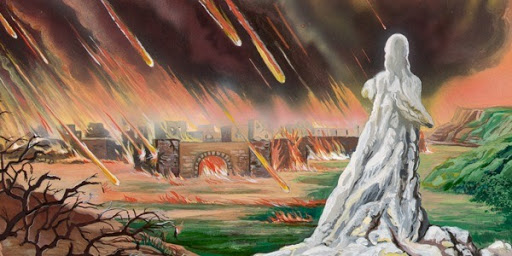
The phrase “near-death experience” is a well known part of our language. Despite its frequent use, it is never viewed as trite. This is because we nearly universally recognize that this kind of incident is not to be taken lightly. A man who suffers a heart attack and flat-lines in the ambulance or on the operating table is well aware of how close he came to death. He typically takes his health far more seriously thereafter. A person who narrowly avoids a life-threatening accident is rarely dismissive of what happened. The reason is that we all understand that there is no coming back from death. One does not recover from death. Even unbelievers recognize this truth.
Most of us understand the significance of a “near-death experience.” It is an object lesson in mortality. Reminding ourselves of our mortality and the fragile nature of human life is an important exercise. It helps us keep our priorities straight as we move inexorably toward eternity. Preachers are particularly fond of drawing our attention to this reality as they try to move us to obey God’s will, and rightfully so. As James wrote, our life is “a vapor that appears for a little while and then vanishes away” (Jas. 4:14).
The scriptures do not explicitly speak of “near-death experiences” as we refer to them. They do, however, refer to what might be called the polar opposite of a “near-death experience”. This is what may be called a “near-life experience”, and the records of such incidents are sad and troubling.
In Mk. 12:28-34 the text tells of a scribe who asked the Lord what the foremost commandment in the Law was. When the Lord responded to him, the scribe answered the Lord with such obvious knowledge and wisdom that the Lord exclaimed, “You are not far from the kingdom of God” (Mk. 12:34). The text does not tell us if this scribe became a disciple of the Lord. If he did not become a disciple, this encounter with Jesus was a “near-life experience” for him. He was “not far from the kingdom of God”, but he was not in it. Until he entered the kingdom in obedience to the Lord, he would never have eternal life. Until he became a disciple of Jesus, he remained dead in his sins.
Another “near-life experience” recorded in Mark’s gospel is the story of the rich young ruler (Mk. 10:17-22). This young man came to the Lord, asking what he must do to inherit eternal life. The Lord’s answer distressed him, because he loved his wealth and possessions more than he loved Jesus. He went away grieving and did not become a disciple. He could have had eternal life, and came very near it, but he went away as he had come, dead in his sins.
The classic “near-life experience” in scripture is the story of Lot’s wife (Gen. 19:1-26). God sent His angels to rescue Lot and his family from Sodom before He destroyed it with brimstone and fire. As the angels brought the family out of the city, they instructed them to flee to safety in the mountains. They also specifically warned them not to look back (v. 17). At this point Lot and his family were nearly saved. Their lives would not be spared, however, until they did all that the angels commanded them to do. The proof is in v. 26, where the scripture says, “But his wife, from behind him, looked back, and she became a pillar of salt”.
Lot’s wife had a “near-life experience” and like the rich young ruler, she failed to take advantage of it. Abraham’s bargaining with God for the city, and God’s gracious provision to bring Lot’s family out of the city went for naught. Lot’s wife had life in her grasp and by her disobedience she let it slip away from her.
The lesson for us to consider is a simple one. The opportunity for eternal life is before us in the message of the gospel as it is declared in the scriptures and proclaimed by God’s people. It is offered to us freely if we are willing to see it and to obey what God requires for us to receive it. There is usually some joy in a “near-death” story, but there is no joy in a “near-life” event. Don’t ignore the eternal life for which the Lord Jesus Christ shed His blood. Say, “Yes” to eternal life by obeying the gospel today, for tomorrow is promised to no one.